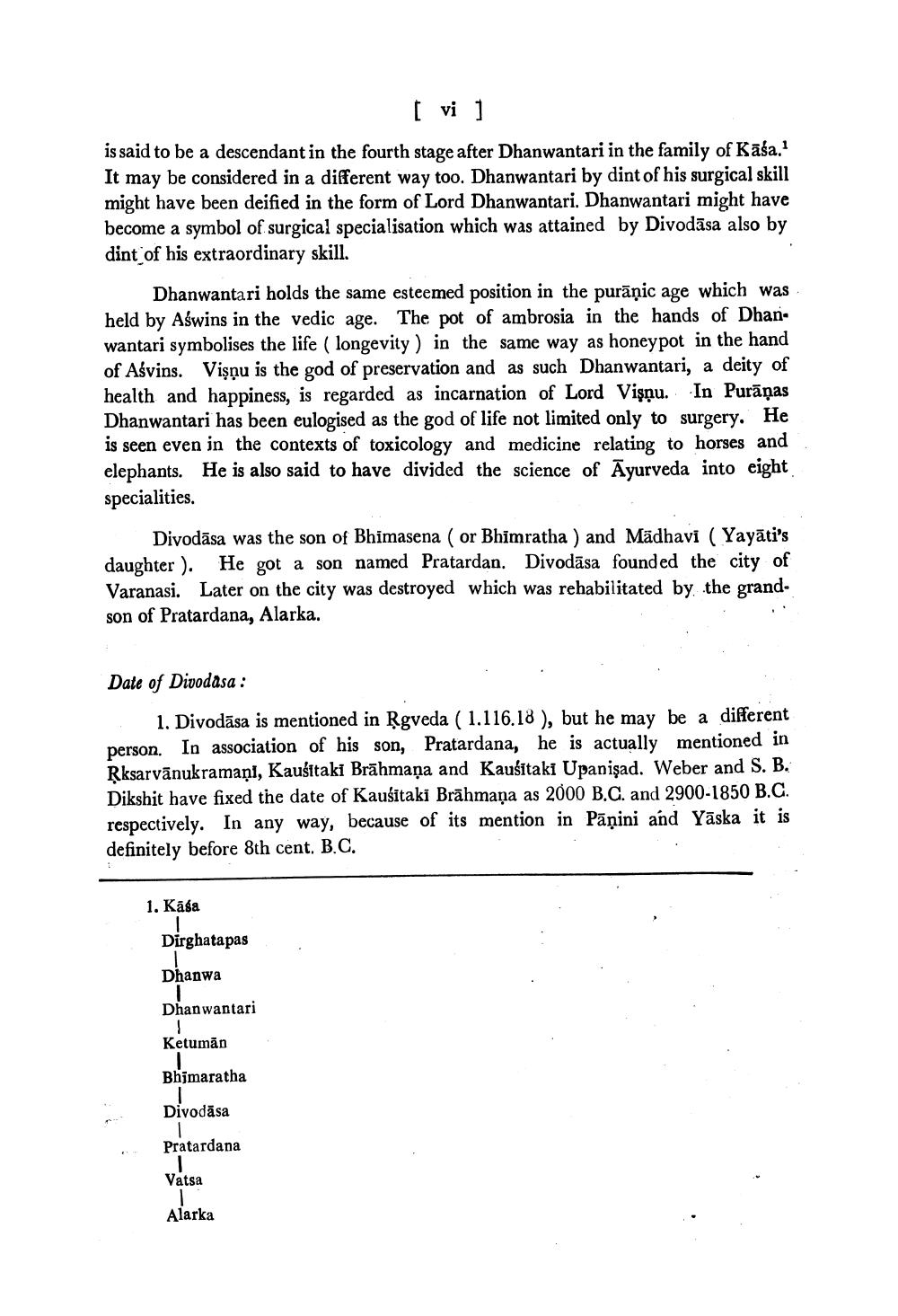________________ [ vi ] is said to be a descendant in the fourth stage after Dhanwantari in the family of Kasa. It may be considered in a different way too. Dhanwantari by dint of his surgical skill might have been deified in the form of Lord Dhanwantari. Dhanwantari might have become a symbol of surgical specialisation which was attained by Divodasa also by dint of his extraordinary skill. Dhanwantari holds the same esteemed position in the puranic age which was held by Aswins in the vedic age. The pot of ambrosia in the hands of Dhan. wantari symbolises the life ( longevity) in the same way as honeypot in the hand of Asvins. Visnu is the god of preservation and as such Dhanwantari, a deity of health and happiness, is regarded as incarnation of Lord Visnu. In Puranas Dhanwantari has been eulogised as the god of life not limited only to surgery. He is seen even in the contexts of toxicology and medicine relating to horses and elephants. He is also said to have divided the science of Ayurveda into eight specialities. Divodasa was the son of Bhimasena ( or Bhimratha ) and Madhavi ( Yayati's daughter ). He got a son named Pratardan. Divodasa founded the city of Varanasi. Later on the city was destroyed which was rehabilitated by the grandson of Pratardana, Alarka. Date of Divodasa : 1. Divodasa is mentioned in Kgveda ( 1.116.18 ), but he may be a different person. In association of his son, Pratardana, he is actually mentioned in Rksarvanukramani, Kausitaki Brahmana and Kausitaki Upanisad. Weber and S. B. Dikshit have fixed the date of Kausitaki Brahmana as 2000 B.C. and 2900-1850 B.C. respectively. In any way, because of its mention in Panini and Yaska it is definitely before 8th cent. B.C. 1. Kasa Dirghatapas Dhanwa Dhanwantari Ketuman Bhimaratha Divodasa Pratardana Vatsa Alarka




